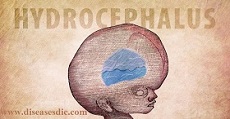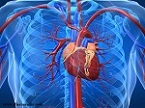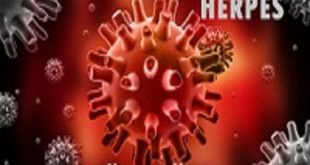Definition Hydrocephalus is a usually congenital condition in which an abnormal accumulation of cerebrospinal fluid in the cerebral ventricles causes enlargement of the skull and compression of an injury to brain tissue. If it becomes progressive, a shunt is surgically placed to reduce pressure by conducting fluid away from the …
Read More »Herpes zoster or Shingles- Symptoms, Treatment and Prevention
Definition Herpes zoster is also called as shingles. It is a Greek word herpein meaning to creep, and zoster meaning girdle or belt. It is an acute viral infection mainly affecting the skin and nerves, manifested by small blisters appearing along the important nerve segments. Herpes zoster is caused by …
Read More »Heart valve disease or Valvular heart disease- Symptoms, and Treatment
Definition The heart valve disease is the damage in one of the heart valves such as the mitral valve, aortic, tricuspid and pulmonary. It can disrupt the blood flow to the heart by tissue flopping. The heart valves work by ensuring that blood flows in a forward direction and doesn’t …
Read More »Hives or Urticaria – Definition, Causes, Treatment and Prevention
Definition Hives are medically known as urticaria, it appears on any part of the skin. It causes itchy welts from small to big blotches for various inched in diameter. It is caused by some allergic reactions. It is formed by the responsibilities of histamine that causes tissues to swell and …
Read More »Hookworm Disease – Risk Factors, Complications, and Prevention.
Introduction Hookworm disease is a parasitic disease caused by the entry of larvae (immature form) of the hookworm, most commonly, Necator americanus, into a human host. People usually get hookworm disease by walking barefoot in soil that is contaminated with the feces of an infected person. Transmission You can get …
Read More »Herpes – Definition, Complications and Diagnosis.
Definition Herpes is an infection caused by HSV (herpes simplex virus). This virus affects the external genitalia, anal region, mucosal surfaces, and skin in other parts of the body. Herpes is a long-term condition. However, many people never have symptoms even though they are carrying the virus. The herpes simplex …
Read More »Hypocobalaminemia – Complications, Causes, and Treatment.
Introduction Hypocobalaminemia or Vitamin B12 deficiency, as the name indicates, it is a condition characterized by a lack of the water soluble vitamin known as B12. A deficiency of this vitamin, which is vital for physical processes, increases the risk of heart attack and can damage the nerve cells apart …
Read More »Hypertension – Epidemiology, Causes, Treatment and Prevention.
Definition Hypertension, also known as high blood pressure, is when the pressure of the blood being pumped through your arteries is higher than it should be. Each time your heart beats, blood is pumped through your arteries and veins, the blood vessels of your circulatory system. Arterial blood pressure is …
Read More » Diseases Treatments Dictionary This is complete solution to read all diseases treatments Which covers Prevention, Causes, Symptoms, Medical Terms, Drugs, Prescription, Natural Remedies with cures and Treatments. Most of the common diseases were listed in names, split with categories.
Diseases Treatments Dictionary This is complete solution to read all diseases treatments Which covers Prevention, Causes, Symptoms, Medical Terms, Drugs, Prescription, Natural Remedies with cures and Treatments. Most of the common diseases were listed in names, split with categories.








